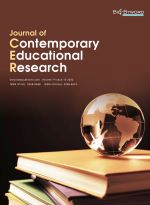Abstract
Objective: To explore and analyze the application effect of participatory teaching method in the standardized training of respiratory medicine residents. Methods: The study period was from May 2022 to May 2023. 20 doctors in the standardized training of respiratory medicine residency in our hospital were taken as research subjects and grouped into the participatory group (n = 10) and the routine group (n = 10) by using the random number lottery method. The participatory group practised participatory teaching methods, and the routine group practised routine teaching methods. The results of discharge assessment, teaching evaluation, and mini-Clinical Evaluation Exercise (mini-CEX) assessment were compared between the groups. Results: The theoretical assessment, operational assessment, and total scores of the participatory group were significantly higher than those of the routine group, and the difference was statistically significant (P < 0.05). The teaching evaluation of independent learning, theoretical mastery, teamwork, clinical thinking, communication, and learning interest of the participatory group was significantly higher than that of the routine group, and the difference was statistically significant (P < 0.05). The mini-CEX assessments of history inquiry, organizational effectiveness, professionalism, physical examination, clinical diagnosis, communication skills, and overall clinical competence of the participatory group were significantly better than those of the routine group, and the difference was statistically significant (P < 0.05). The teaching satisfaction of the participatory group was significantly higher than that of the routine group, the difference was statistically significant (P < 0.05). Conclusion: Participatory teaching methods can improve the overall level of doctors in the respiratory medicine residency standardized training, and the teaching satisfaction is improved.
References
Wang Z, Liu J, Li Y, et al., 2023, Application and Exploration of Management Participatory Teaching Mode in Standardized Training of General Medicine Residents. Family Medicine Clinical and Education, 21(06): 530–532.
Zeng T, Xie X, 2022, Application of CBL and PBL Teaching Model Based on Multidisciplinary Collaborative Diagnosis and Treatment in the Standardized Training of Obstetrics and Gynecology Residents. Health Career Education, 40(23): 144–146.
Liu S, Zhang J, Yi Z, et al., 2023, Comparison of the Training Needs of Dermatology Residency Training Trainees of Different Genders in Terms of Clinical Research Ability. Chinese Journal of Integrative Dermatology and Venereology, 22(02): 151–154.
Du Y, Gao T, Zhang Y, 2023, Research on the Application of PBL Teaching Method Integrating Humanistic Care in the Standardized Training of Gynecology Residents. Modern Medicine and Health, 39(08): 1421–1423.
Jin K, Jiang S, Zheng X, et al., 2023, Application of CBL+SP Joint Teaching Mode in Standardized Training of Infectious Disease Residents. China Continuing Medical Education, 15(07): 24–29.
Chen Z, Shang Y, Zhang D, et al., 2023, Questionnaire Survey Analysis of the Current Situation of Combining Medical Degree Graduate Training with Standardized Residency Training. China Traditional Chinese Medicine Modern Distance Education, 21(07): 176–179.
Yi K, Chen Z, Quan Y, et al., 2023, The Application Effect of PDCA Cycle in Improving the Passing Rate of Final Skills Assessment for Standardized Training of Residents. Pharmaceutical Higher Education and Modern Nursing, 6(02): 173–176.
Lai X, Sun C, Zhang X, et al., 2023, Application of WeChat Platform Flipped Classroom Combined with CBL Teaching Method in Standardized Training of Cardiac Surgery Residents. China Medical Case, 24(03): 88–90.
Yan Y, Shi J, 2023, Analysis of the File Management Work of Standardized Training of Chinese Medicine Residents in a Hospital from the Perspective of Human Resource Management. Talent, 2023(08): 153–155.
Guo Q, Yang J, Ling L, et al., 2023, Study on the Teaching Effect of Clinical Teaching Quality Rating System of Chinese Medicine Resident Standardized Training and Postgraduate Training in Parallel. Chinese Community Physician, 38(36): 159–163.
Zhou B, Wang W, Tan Y, 2022, Impact of a Novel Coronavirus Pneumonia Epidemic on Standardized Residency Training in Low and Medium-Risk Areas of Beijing. China Postgraduate Medical Education, 6(06): 545–548.
Huang B, Kong W, Wang L, et al., 2022, Exploration and Practice of Job Competency-Oriented Standardized Training System for Radiation Oncology Residents. China Postgraduate Medical Education, 6(06): 560–563.
Lu F, Tao H, Liang L, et al., 2022, Questionnaire Construction and Related Research on the Standardized Training Model for Chinese Medicine Residents Based on the Delphi Method. China Postgraduate Medical Education, 6(06): 620–624.
Li T, Yu N, Xia M, et al., 2022, Practice and Exploration of Faculty Assessment System for Residency Training in County and City-Level General Hospitals. Transportation Medicine, 36(06): 656–657 + 660.
Wei B, Jin Y, Xu L, et al., 2022, Exploration of the Application of Mini-CEX Combined with DOPS Evaluation System in the Standardized Training of Medical Oncology Residents. Laboratory Medicine and Clinics, 19(23): 3306–3307 + 3312.
